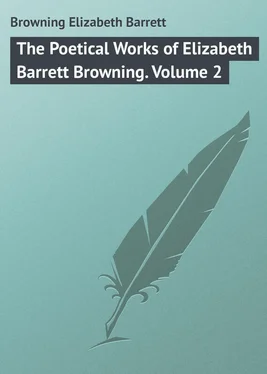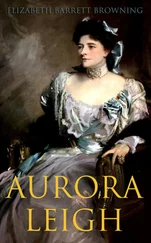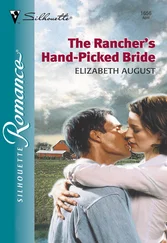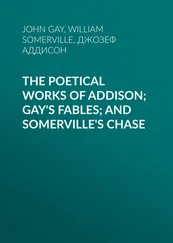XXXII
He speaketh calm, he speaketh low, —
"Ride fast, my master, ride,
Or ere within the broadening dark
The narrow shadows hide."
"Yea, fast, my page, I will do so,
And keep thou at my side."
XXXIII
"Now nay, now nay, ride on thy way,
Thy faithful page precede.
For I must loose on saddle-bow
My battle-casque that galls, I trow,
The shoulder of my steed;
And I must pray, as I did vow,
For one in bitter need.
XXXIV
"Ere night I shall be near to thee, —
Now ride, my master, ride!
Ere night, as parted spirits cleave
To mortals too beloved to leave,
I shall be at thy side."
The knight smiled free at the fantasy,
And adown the dell did ride.
XXXV
Had the knight looked up to the page's face,
No smile the word had won;
Had the knight looked up to the page's face,
I ween he had never gone:
Had the knight looked back to the page's geste,
I ween he had turned anon,
For dread was the woe in the face so young,
And wild was the silent geste that flung
Casque, sword to earth, as the boy down-sprung
And stood – alone, alone.
XXXVI
He clenched his hands as if to hold
His soul's great agony —
"Have I renounced my womanhood,
For wifehood unto thee ,
And is this the last, last look of thine
That ever I shall see?
XXXVII
"Yet God thee save, and mayst thou have
A lady to thy mind,
More woman-proud and half as true
As one thou leav'st behind!
And God me take with Him to dwell —
For Him I cannot love too well,
As I have loved my kind."
XXXVIII
She looketh up, in earth's despair,
The hopeful heavens to seek;
That little cloud still floateth there,
Whereof her loved did speak:
How bright the little cloud appears!
Her eyelids fall upon the tears,
And the tears down either cheek.
XXXIX
The tramp of hoof, the flash of steel —
The Paynims round her coming!
The sound and sight have made her calm, —
False page, but truthful woman;
She stands amid them all unmoved:
A heart once broken by the loved
Is strong to meet the foeman.
XL
"Ho, Christian page! art keeping sheep,
From pouring wine-cups resting?" —
"I keep my master's noble name,
For warring, not for feasting;
And if that here Sir Hubert were,
My master brave, my master dear,
Ye would not stay the questing."
XLI
"Where is thy master, scornful page,
That we may slay or bind him?" —
"Now search the lea and search the wood,
And see if ye can find him!
Nathless, as hath been often tried,
Your Paynim heroes faster ride
Before him than behind him."
XLII
"Give smoother answers, lying page,
Or perish in the lying!" —
"I trow that if the warrior brand
Beside my foot, were in my hand,
'T were better at replying!"
They cursed her deep, they smote her low,
They cleft her golden ringlets through;
The Loving is the Dying.
XLIII
She felt the scimitar gleam down,
And met it from beneath
With smile more bright in victory
Than any sword from sheath, —
Which flashed across her lip serene,
Most like the spirit-light between
The darks of life and death.
XLIV
Ingemisco, ingemisco!
From the convent on the sea,
Now it sweepeth solemnly,
As over wood and over lea
Bodily the wind did carry
The great altar of St. Mary,
And the fifty tapers paling o'er it,
And the Lady Abbess stark before it,
And the weary nuns with hearts that faintly
Beat along their voices saintly —
Ingemisco, ingemisco!
Dirge for abbess laid in shroud
Sweepeth o'er the shroudless dead,
Page or lady, as we said,
With the dews upon her head,
All as sad if not as loud.
Ingemisco, ingemisco!
Is ever a lament begun
By any mourner under sun,
Which, ere it endeth, suits but one ?
THE LAY OF THE BROWN ROSARY
I
"Onora, Onora," – her mother is calling,
She sits at the lattice and hears the dew falling
Drop after drop from the sycamores laden
With dew as with blossom, and calls home the maiden,
"Night cometh, Onora."
II
She looks down the garden-walk caverned with trees,
To the limes at the end where the green arbour is —
"Some sweet thought or other may keep where it found her,
While, forgot or unseen in the dreamlight around her,
Night cometh – Onora!"
III
She looks up the forest whose alleys shoot on
Like the mute minster-aisles when the anthem is done
And the choristers sitting with faces aslant
Feel the silence to consecrate more than the chant —
"Onora, Onora!"
IV
And forward she looketh across the brown heath —
"Onora, art coming?" – what is it she seeth?
Nought, nought but the grey border-stone that is wist
To dilate and assume a wild shape in the mist —
"My daughter!" Then over
V
The casement she leaneth, and as she doth so
She is 'ware of her little son playing below:
"Now where is Onora?" He hung down his head
And spake not, then answering blushed scarlet-red, —
"At the tryst with her lover."
VI
But his mother was wroth: in a sternness quoth she,
"As thou play'st at the ball art thou playing with me?
When we know that her lover to battle is gone,
And the saints know above that she loveth but one
And will ne'er wed another?"
VII
Then the boy wept aloud; 't was a fair sight yet sad
To see the tears run down the sweet blooms he had:
He stamped with his foot, said – "The saints know I lied
Because truth that is wicked is fittest to hide:
Must I utter it, mother?"
VIII
In his vehement childhood he hurried within
And knelt at her feet as in prayer against sin,
But a child at a prayer never sobbeth as he —
"Oh! she sits with the nun of the brown rosary,
At nights in the ruin —
IX
"The old convent ruin the ivy rots off,
Where the owl hoots by day and the toad is sun-proof,
Where no singing-birds build and the trees gaunt and grey
As in stormy sea-coasts appear blasted one way —
But is this the wind's doing?
X
"A nun in the east wall was buried alive
Who mocked at the priest when he called her to shrive,
And shrieked such a curse, as the stone took her breath,
The old abbess fell backwards and swooned unto death
With an Ave half-spoken.
XI
"I tried once to pass it, myself and my hound,
Till, as fearing the lash, down he shivered to ground —
A brave hound, my mother! a brave hound, ye wot!
And the wolf thought the same with his fangs at her throat
In the pass of the Brocken.
Читать дальше












